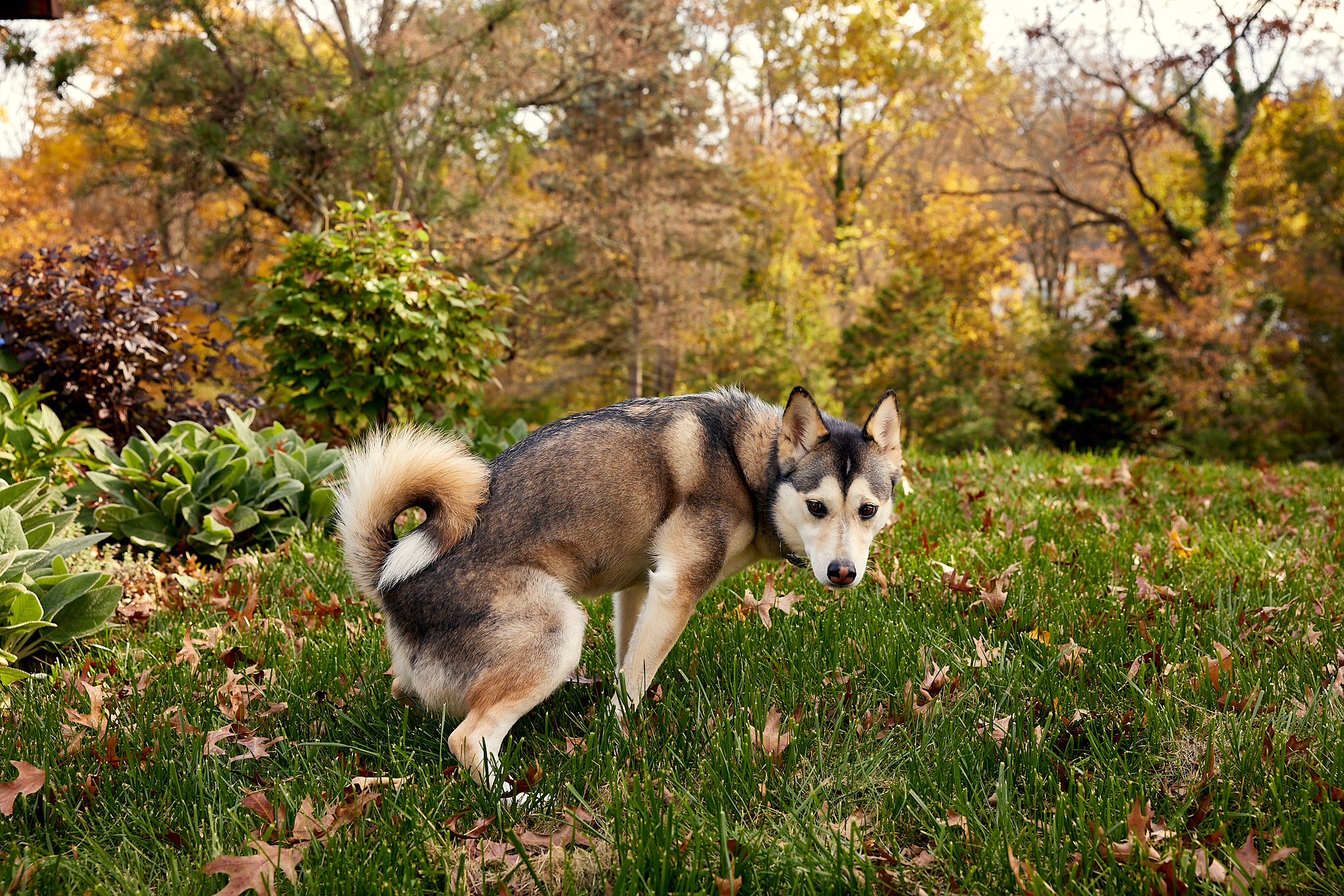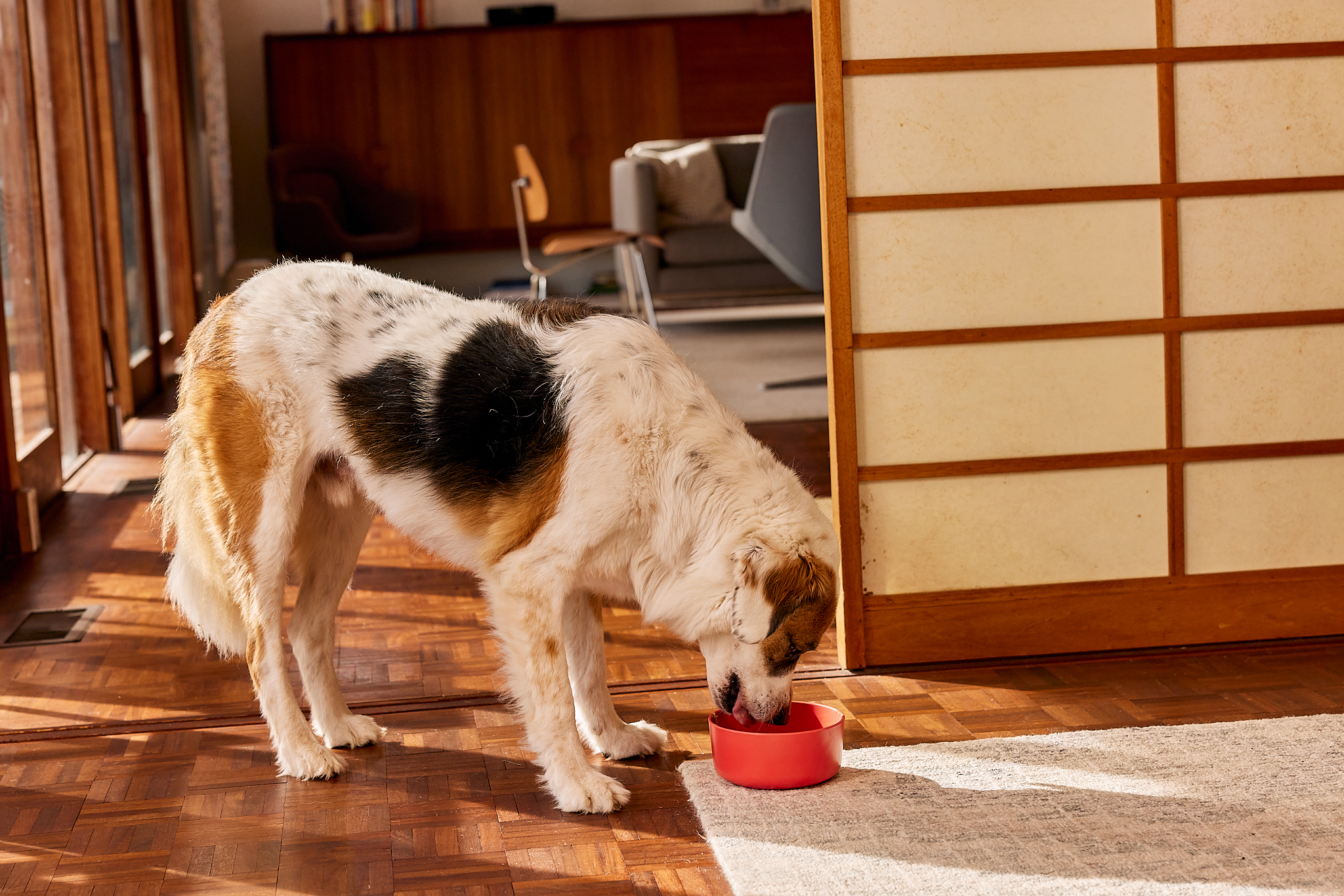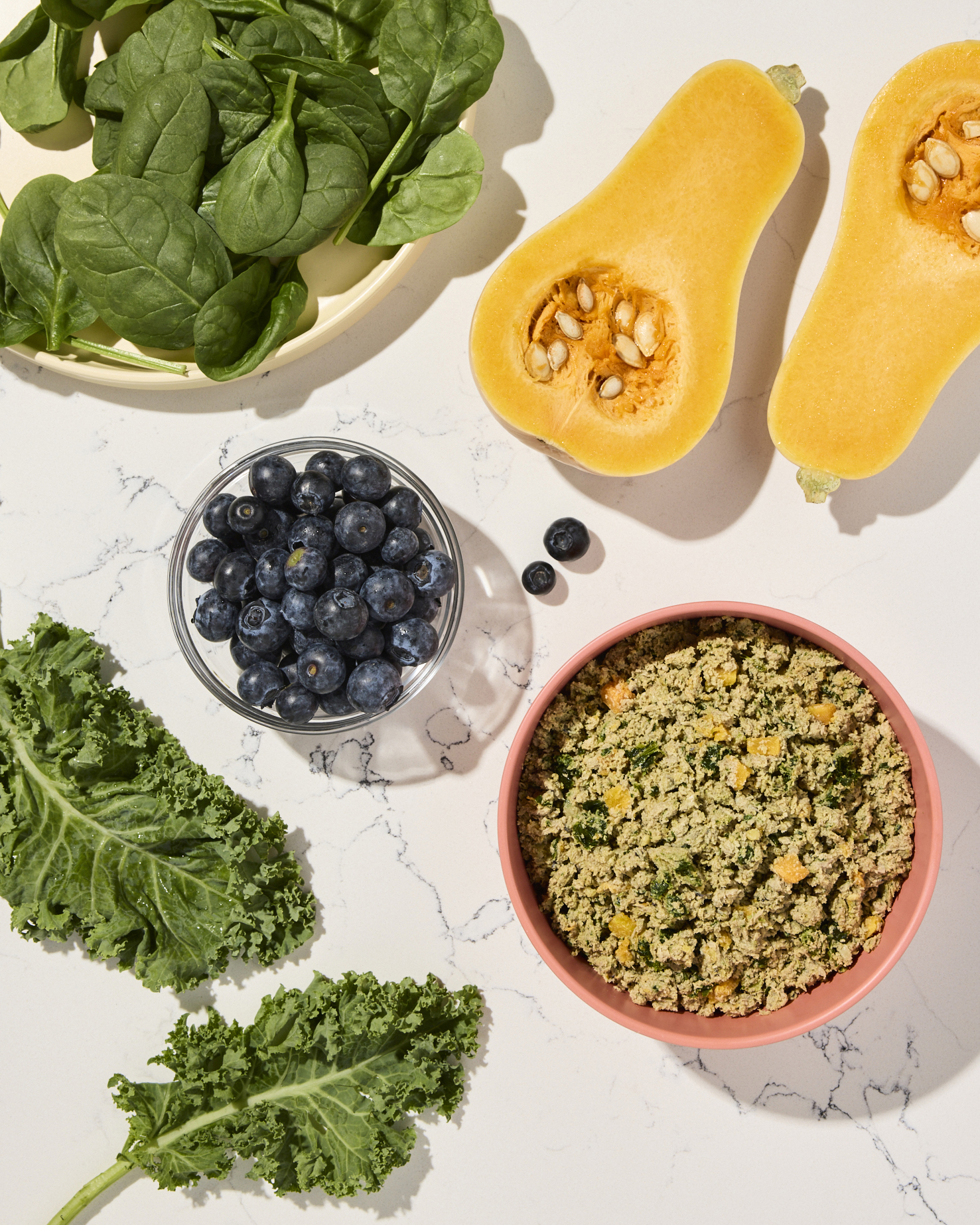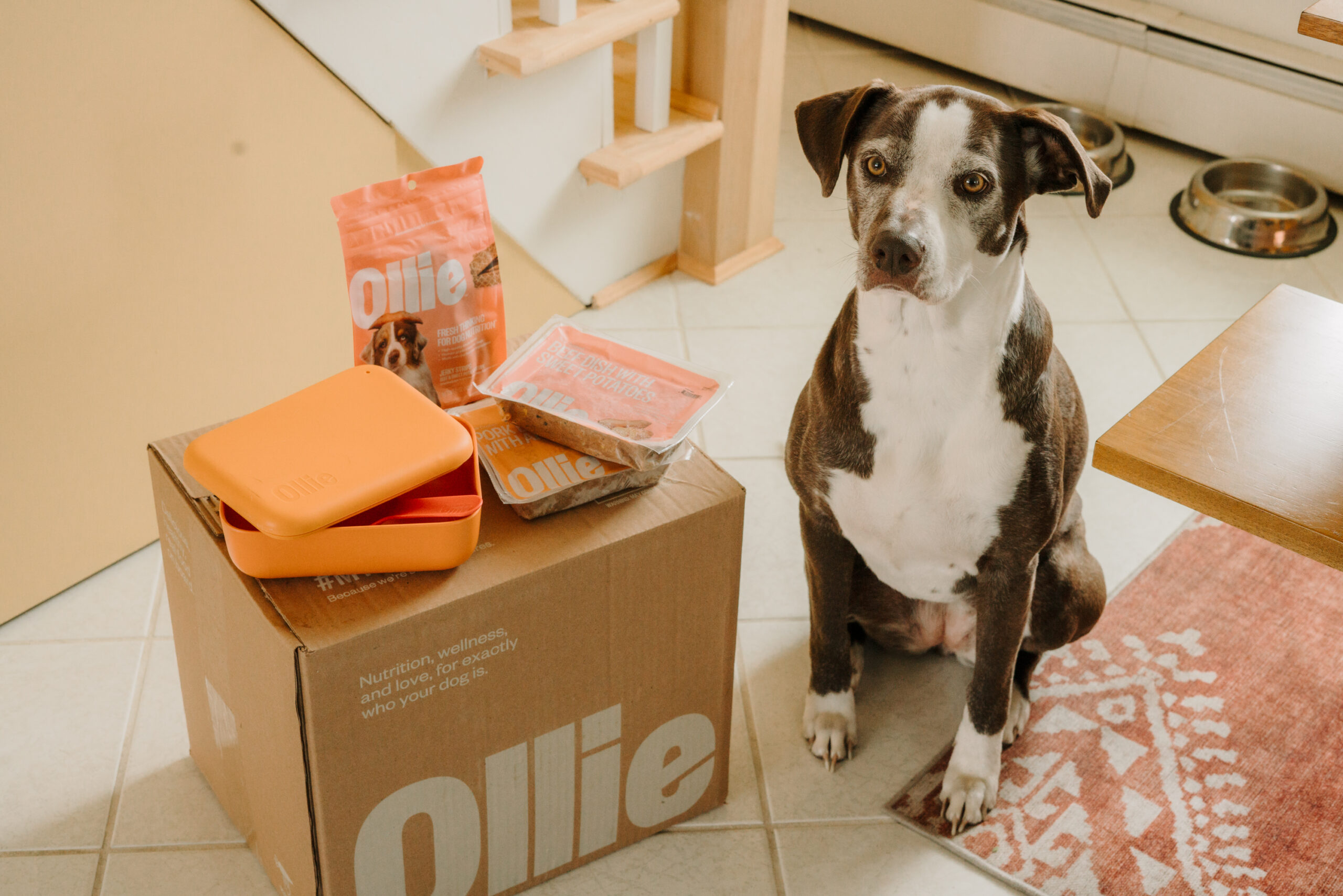Hey Ollie blog readers! We’re offering you an exclusive 60% OFF your starter box! Try now!
Dogs eating poop is a fairly common habit, especially in puppies, but that doesn’t make the behavior less gross for pet parents. Understanding why your dog may be snacking on stools can help you determine how to stop this unpleasant behavior or, at least, learn how to manage your dog’s environment and minimize poop-eating opportunities. Learn the most common medical and behavioral reasons why dogs eat poop—whether it’s their own or another pet’s—and some helpful advice on how to address each cause.
Why Do Dogs Eat Poop?
If you’ve ever caught your dog eating poop, you’re not alone—this behavior, known as coprophagia, is surprisingly common in dogs. While it may seem gross to humans, there are several possible reasons why dogs engage in this habit.
One of the most common explanations is instinct. In the wild, mother dogs clean their puppies by eating their waste to keep the den sanitary. Some puppies pick up this behavior and may continue it even after they no longer need to.
Dogs may also eat poop due to nutritional deficiencies. If their diet lacks certain vitamins, minerals, or digestive enzymes, they may seek out feces as a way to supplement what’s missing. Additionally, conditions like malabsorption disorders or parasites can cause increased hunger and abnormal cravings, making poop an unintended food source.
Behavioral factors also play a role. Dogs that are bored, anxious, or seeking attention may turn to eating poop as a way to entertain themselves. In some cases, dogs who have been punished for accidents indoors may eat their own waste to hide the evidence, fearing they’ll get in trouble.
While some reasons for poop-eating are harmless, others may indicate underlying health concerns. If your dog is regularly eating poop, it’s a good idea to consult your veterinarian to rule out medical issues and ensure they’re getting proper nutrition.
Dogs Will Be Dogs: Poop Eating Is a Natural Behavior
Before learning about the complex reasons why dogs eat poop (i.e., coprophagia), understand that occasional poop eating is natural—and often normal—canine behavior. Dogs do not share pet parents’ sanitation, hygiene, health, or tastiness standards! While you see animal waste as disgusting, your dog sees a treasure trove of fragrant and flavorful information.
By keeping in mind your dog’s poop-eating perspective, you can avoid shaming them when you see them occasionally eating stool. Punishment damages the dog-owner relationship, and harsh reprimand can intensify your dog’s coprophagia.
Medical Reasons Your Dog Is Eating Poop
If your dog or puppy is suddenly eating poop, consuming it with increased frequency, or obsessively seeking it out in the yard or on a walk, an underlying medical cause may be driving this behavior. Untreated health conditions and disorders can lead to severe—sometimes irreversible—complications. If your pup’s poop eating is more than the occasional nibble, consult your veterinarian to determine if a medical cause is to blame. In addition to the causes discussed below, other chronic health conditions can prompt dogs to eat poop, including diabetes, Cushing’s disease, and hypothyroidism (i.e., low thyroid). However, the most common medical causes for poop eating include:
Parasites
Intestinal parasites, such as roundworms, hookworms, and whipworms, live in a dog’s gut, damaging their intestinal lining and disrupting food absorption. Parasites also directly feed on components of your dog’s food, robbing your pup of essential nutrients. This resulting deficiency drives some dogs to eat poop, which is rich in various nutrients and beneficial bacteria, and helps them recover lost vitamins and minerals.
Diet Deficiencies
Dogs may eat poop in an effort to consume more calories. If your dog’s food isn’t providing adequate nutrition and energy to maintain their body systems, they may attempt to satisfy those needs by ingesting fecal material, especially stools containing undigested fats. This can be easily remedied by feeding your dog the appropriate amount of a balanced and nutritionally complete diet.
Malabsorption
Many medical conditions and therapies can disrupt your dog’s digestion and nutrient absorption, including inflammatory bowel disease, intestinal blockages, and certain prescription medications. Dogs who are unable to absorb and utilize the nutrients in their food are often visibly ill, experiencing vomiting, loose stools, and excessive gas. In addition, dogs with malabsorption issues exhibit noticeable weight loss despite having a hearty appetite.
Behavioral Reasons Your Dog is Eating Poop
In addition to physical health abnormalities, changes in your dog’s emotional health and wellbeing can cause coprophagia. Your dog’s poop eating can be caused by the following behavioral issues:
Stress and Anxiety
Stress can trigger unusual or inappropriate canine behaviors, including coprophagia. Dogs who experience prolonged isolation or who were previously housed in close quarters with other dogs (e.g., shelters, hoarding situations) frequently demonstrate stool-eating behavior. Dogs who lack mental or social stimulation may eat poop because of boredom-induced stress.
Trauma Associated with Poop
Negative events, such as being scolded, punished, or otherwise frightened after inappropriately relieving themselves (e.g., potty training accidents, eliminating inside the house), may prompt dogs to eat their own poop in an effort to hide the evidence and escape further punishment. If your puppy or dog eliminates inappropriately, stay calm and make a mental note to take them outside more often or at more consistent intervals.
Seeking Attention from Owners
Dogs who lack social interaction may exhibit undesirable behaviors, such as biting, barking, or poop eating, to get their owner’s or caretaker’s attention. For these dogs, negative attention is considered better than no attention.
Imitating Another Dog’s Behavior
While their puppies are nursing, mother dogs ingest the puppies’ stools to maintain a clean and safe environment. Although this behavior ends when puppies transition to solid food, some puppies will mimic their mom’s behavior. Puppies and adolescent dogs may also learn through observation if another dog in their household eats poop.
Most Common Reasons Dogs Eat Poop
While poop-eating may seem strange, there are several common reasons why dogs engage in this behavior:
- Instinct & Motherly Behavior – Puppies often mimic their mothers, who clean up after their litter by eating waste.
- Nutritional Deficiencies – Dogs lacking key nutrients, digestive enzymes, or experiencing malabsorption may turn to poop as a way to supplement their diet.
- Boredom & Anxiety – Dogs left alone for long periods or not mentally stimulated may eat poop out of boredom or stress.
- Attention-Seeking – If a dog notices they get a reaction when they eat poop, they may continue doing it to get attention.
- Hiding Accidents – Some dogs eat their own waste to avoid punishment if they have been scolded for indoor accidents in the past.
- Medical Conditions – Health issues like diabetes, thyroid imbalances, or intestinal parasites can cause increased hunger and abnormal eating behaviors.
Understanding the root cause of poop-eating can help determine the best way to address and prevent it. If the behavior is frequent or excessive, a vet visit can help rule out any medical concerns.
Is It Normal for Puppies to Eat Poop?
Because puppies are naturally curious and lack a trained adult dog’s impulse control, they are the most likely to eat their own poop and any other pet’s poop they can find. Fortunately, the reason behind this behavior is most often benign. A puppy has usually learned the behavior from their mother or another dog, is exploring their environment, or has learned that eating poop gets a big reaction from you. If your puppy has been eating poop, you have little cause for concern. Although most puppies naturally grow out of this phase, chronic or obsessive poop eating or that which is accompanied by other illness signs, should be assessed by a veterinarian.
How to Stop a Dog from Eating Poop
No matter how natural your dog’s motivations are, you’re likely more interested in stopping this gross behavior. To curb your pup’s appetite for poop and minimize their opportunities to snack on fresh stool, follow these tips:
Visit the Vet if Your Pup Has Symptoms of a Medical Issue
Determine whether your dog’s physical condition suggests their stool consumption has a medical cause such as parasites or malabsorption. If you suspect your dog has a medical issue, consult your veterinarian before trying any DIY solutions or deterrents.
Pick Up Your Dog’s Poop Right Away
Controlling your dog’s ability to eat poop can be an effective way to break this habit, although you must be vigilant and consistent to prevent them from sneaking snacks. When on a walk or in your yard, immediately pick up your dog’s poop, as well as any other poop you see. Alternatively, you can shorten your dog’s leash or have them wear a basket muzzle to prevent them from eating poop during walks or while at the dog park. If your dog likes to dine at the cat’s litter box, clean the box several times per day and place it behind a gate or similar dog-proof barrier.
Offer Your Dog Poop-Eating Deterrent Treats
If you can’t stop your dog from eating poop by limiting their access, you can try to make it less appealing by giving them a deterrent powder or treat made for coprophagic canines. You can also try adding some pumpkin to their diet to make the stool less appetizing.
Properly Exercise and Enrich Your Dog
Physical exercise and mental stimulation often resolve a dog’s behavior-based eating disorder, including coprophagia. Ensure your dog is receiving sufficient and satisfying exercise by engaging in regular physical activity (e.g., walks, hikes, play) and inviting your pup to play mentally stimulating games (e.g., puzzle toys and mats, scent-based activities).
Learning the answer to ”Why do dogs eat poop?” may not make the behavior more acceptable to you. However, by gaining insight to this canine mystery, you become a more compassionate and attentive dog owner, especially in regard to your dog’s physical, emotional, and nutritional needs.
Do Puppies Ever Outgrow Eating Poop?
Yes, in many cases, puppies do outgrow eating poop as they mature. Coprophagia, or poop-eating behavior, is fairly common in young dogs and often stems from natural curiosity and learned behavior. Puppies explore the world with their mouths, and eating poop may simply be another way for them to investigate their surroundings.
Another reason puppies eat poop is instinct. Mother dogs clean up after their litter by eating their waste, and some puppies mimic this behavior. As they grow older and develop better eating habits, most will naturally stop.
However, some puppies continue the habit due to nutritional deficiencies, boredom, or attention-seeking behavior. Ensuring your puppy has a balanced diet, plenty of mental stimulation, and positive reinforcement training can help break the cycle. If poop-eating persists beyond puppyhood, it’s best to consult a veterinarian to rule out underlying medical causes.
The Ollie blog is devoted to helping pet parents lead healthier lives with their pups. If you want to learn more about our fresh, human-grade food, check out MyOllie.com.
Tagged As:

The nutrition your dog needs,
the food they want.

Enjoying our articles? Subscribe our Newsletters and get new articles directly to your inbox
You might also like
4 June 2025
5 MINS READ
How Can Fresh Dog Food Help with Weight Management?
Maintaining a healthy weight is one of the most important aspects of your dog’s overall health and longevity. Being overweight or underweight can result in health complications and conditions that…
23 May 2025
5 MINS READ
Why Fresh Dog Food Makes Happier, Healthier Dogs That Live Longer
Every pup parent wants their dog to live a long, happy life, and the path to a healthier, happier dog starts with what’s in their bowl. Recent research and expert insights reveal that fresh dog …
by Ollie Pets
23 May 2025
8 MINS READ
Why Human-Grade Ingredients Matter for Dogs with Health Issues
For dogs with allergies, sensitive stomachs, or other health concerns, a higher quality of life starts with food made from higher quality ingredients. The right nutrition can make a significant di…
by Ollie Pets







